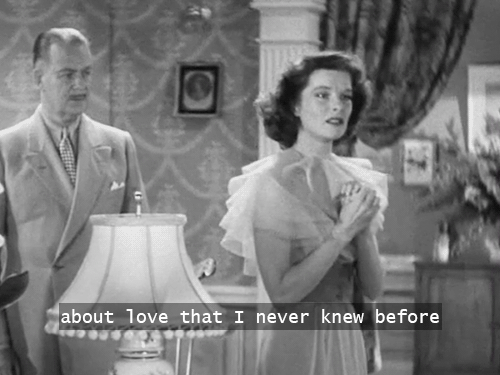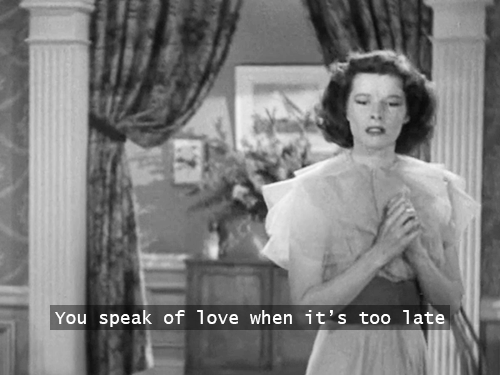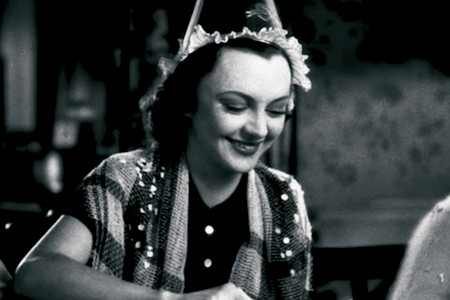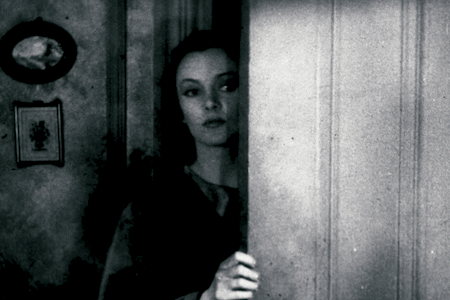#andrea leeds
Explore tagged Tumblr posts
Text
hi here’s a very short, very silly stage door edit i just spent all my free time making
#katharine hepburn#old hollywood#ginger rogers#lucille ball#lesbian#lesbian film#queer film#queer cinema#lesbian coded#l word#the l word#sapphic#gail patrick#andrea leeds#eve arden#old hollywood edit#edit#video edit#fan cam
24 notes
·
View notes
Text


Silver Screen magazine, December 1938
#andrea leeds#joel mccrea#youth takes a fling#1938#1930s#hollywood#old hollywood#classic hollywood#silver screen#magazine#silver screen magazine#vintage hollywood#movie magazine
10 notes
·
View notes
Text






Terry Randall / Kay Hamilton Stage Door (1937)
#i'm throwing my hat in the kay/terry ring#i know everyone ships ginger rogers & katharine hepburn in this movie but please consider 🥺️🥺️🥺️#stage door 1937#andrea leeds#katharine hepburn#classic movies#vintage movies#my edits
55 notes
·
View notes
Text

Here are 5 of the 9 out of 10 Screen Stars who use Lux to stay dainty…in 1940
17 notes
·
View notes
Text


The Film Daily, October 5, 1937.
#stage door 1937#1930s#the film daily#katharine hepburn#ginger rogers#gail patrick#lucille ball#andrea leeds#old hollywood#old movies#old magazines#old movie stars#classic hollywood#30s movies#1930s movies#1930s cinema#30s film#pink#old hollywood movies
6 notes
·
View notes
Photo


Isn't there enough heartache in the theater without our hating each other? ANDREA LEEDS (Kay Hamilton) in STAGE DOOR (1937) | dir. Gregory La Cava
#1930's cinema#`1930's#1937#stage door#andrea leeds#gregory la cava#oldhollywood#filmblr#classicfilmsource#filmedit#dramaedit#dramagif
5 notes
·
View notes
Text

Edward Arnold and Andrea Leeds behind the scenes of Come and Get It (1936)
0 notes
Text
Very interesting interview this:
youtube
it's great that Radz doing this and clear the air for a bit. I would pay a lot of money to see a roundtable between the three amigos (Radz, Victor and Angus).
I love that there's no finger pointing, I do believe he did everything in a good faith (he leaves the club in much better position than how he found it). Do I still blame him to not stick with Jesse especially that late in the season? Yes I do. But there's no bad blood in there, it's just a series of misfortune that can happened to any club anyway.
Now I'm gonna pay close attention to Sampdoria and see how things going in there. Sevilla too, because everyone is gonna try their best to brush off the bad taste they got at the end of their Leeds tenure.
4 notes
·
View notes
Text
The 30 Best Fiction Books of 2024
As we come to the end of 2024, it’s the perfect time to reflect on all of the incredible things we’ve done and the media we’ve consumed over the course of the past year. Today, as the very last part of our Best of series, we’re taking some time to chat about the best fiction books! To be eligible for this list, books had to be published for the first time in 2024 and read by at least one member…
#abbott kahler#akwaeke emezi#alex michaelides#amanda lee koe#american rapture#amy tintera#andrea mara#anita de monte laughs last#annie bot#anyone&039;s ghost#ashley elston#august thompson#baby x#best book of the year#best books#best books of 2024#best fiction books#best fiction books of 2024#best fiction of 2024#best of 2024#by The Team#cj leede#come & get it#emiko jean#emily henry#first lie wins#funny story#hayley dennings#holly gramazio#holly jackson
0 notes
Text
NEM Architecture 24 - Curated by Noah Fentz
FEATURED WORKS BY: Pati John, Peter Scott Bartsch, Andrea Bigiarini, Bob Weil, Kat Leeds Meininger, Anndrea Lewis, Julia Badakhshan and Marc Devriese.
#Noah Fentz#Peter Scott Bartsch#Andrea Bigiarini#Bob Weil#Kat Leeds Meininger#Anndrea Lewis#Julia Badakhshan#Marc Devriese
0 notes
Photo

Leeds United: Meslier, Ayling, Koch, Cooper (Wober 35), Roca, Bamford (Rodrigo 71), Summerville, Harrison, Kristensen, McKennie (Forshaw 71), Gnonto.
Subs not used: Robles, Firpo, Aaronson, Struijk, Rutter, Greenwood. This game ended with chants of "what the fucking hell was that?" and "you're not fit to wear the shirt" from the away fans. A few hours later the LUFC Supporters Advisory Board issued a statement of no confidence in the manager and the board - and it's hardly surprising. The club deserves to be relegated. The Leeds board have shown themselves to be a bunch of chancers who got lucky when they somehow persuaded Marcelo Bielsa to come to Elland Road. Over the last three seasons they've made no real progress in terms of building a squad that can compete in the Premier League - in fact we've gone backwards year on year. After getting rid of Bielsa, they brought in Jesse Marsch, whose brand of football didn't work in the Premier League, and after sticking with him for far too long they finally replaced him with Javi Gracia, who was something like their seventh choice but the best manager they could get under the circumstances. He did OK initially but since things started to go seriously wrong for him he's been clueless - and he's clearly lost the dressing room. Whatever happened at half time in the Crystal Palace game has killed us, because ever since then the players have more or less given up.... Nobody expects Leeds to be able to compete with the super rich clubs at the top of the league anytime soon, but getting beaten 5-1 by Palace and now 4-1 by Bournemouth is unacceptable. Over the last five games Gracia has gone from having a shout at getting the job full time to everybody wanting him to fuck off already. We might as well sack him now and start planning for next season in the Championship. As usual it's the fans who really have to deal with the disappointment. Supporting Leeds is never boring but it's a shame that it's usually for the wrong reasons. At least match tickets will be easier to get next season when the plastic fans have stopped coming....
#leeds united#javi gracia#andrea radrizzani#victor orta#angus kinnear#football#soccer#premier league#but not much longer#2023
0 notes
Text

Zonya & Andrea at Elland Road, Happy Mondays concert, Leeds 1991, by Richard Davis
33 notes
·
View notes
Text
My non-Avenger friends in my Marvel DR
+ siblings and bodyguard
Kylen Jones
- based on this bot

Michele Jones

Ned Leeds

Vuk - older brother

Andrea - younger sister

JJ - step brother

Jason Smith - bodyguard
- based on the actors roles, this bot

#shiftblr#reality shifting#desired reality#shifting community#reality shift#shifting#shifting realities
5 notes
·
View notes
Text



THE GOLDWYN FOLLIES (1938)
Starring Adolphe Menjou, The Ritz Brothers, Edgar Bergen, Charlie McCarthy, Andrea Leeds, Vera Zorina, Kenny Baker, Phil Baker, and Jerome Cowan. Directed by George Marshall.
14 notes
·
View notes
Text
Back after a week off!
Script below the break.
Hello and welcome back to The Rewatch Rewind, the podcast where I count down my top 40 most rewatched movies. My name is Jane, and today I will be discussing number 31 on my list: RKO’s 1937 dramatic comedy, or comedic drama, Stage Door, directed by Gregory La Cava, written by Morrie Ryskind and Anthony Veiller, from the play by Edna Ferber and George S. Kaufman, starring Katharine Hepburn, Ginger Rogers, and Adolphe Menjou.
When heiress Terry Randall (Katharine Hepburn) decides to go into show business, she moves into a theatrical boarding house called the Footlights Club with other, significantly poorer, aspiring actresses. She keeps the details of her privileged background secret, but nevertheless struggles to fit in with the others, particularly her new roommate Jean Maitland (Ginger Rogers), who see her as a snob. The conflict heats up even more when Terry is cast in a role that another Footlights Club resident, Kay Hamilton (Andrea Leeds) had her heart set on.
I can’t remember exactly how I first discovered this movie, but I assume it was because I love both Katharine Hepburn and Ginger Rogers, and I was trying to watch as many of their films as I could get my hands on. They are two of the four actors to make it into at least 4 of the movies that will be on this podcast, so it makes sense that I would keep revisiting a movie that featured both of them, even though they apparently didn’t get along very well offscreen. I think I might have seen Stage Door for the first time in 2002, I’m not sure, but once I started keeping track, I watched it 17 times: twice in 2003, three times in 2005, once in 2006, twice in 2008, twice in 2009, twice in 2011, once in 2013, once in 2014, once in 2015, once in 2016, and once in 2022. Back in 2013, I blogged about the movies I had watched at least 10 times in 10 years, and at the time Stage Door was the only one of those I didn’t own a copy of, so I know that at least all the views prior to then were because I borrowed it from the library. When I finally got it on DVD, it was part of a Katharine Hepburn collection that included the 1933 version of Little Women, which won Best Adapted Screenplay. When I was going through adapted screenplay winners in 2017, after I watched that one, the collection somehow fell under my bed without me realizing it, so the next time I wanted to watch Stage Door, I couldn’t find it, and it wasn’t until 2022 that I finally cleaned out under my bed and uncovered it. So Stage Door would be even higher on this list if I cleaned my room more often.
In my last episode, I mentioned that what I really wanted out of Newsies was more of the ensemble just hanging out, and that is exactly what Stage Door provides. There are so many great scenes featuring Footlights Club residents exchanging witty banter, without in any way hindering the plot. While some of that comes from the stars, particularly Ginger Rogers, the supporting cast is absolute gold and features several relative unknowns at the time who became quite famous later, such as future television stars Eve Arden and Lucille Ball, in addition to then-14-year-old Ann Miller, who used a fake birth certificate to pretend to be 18, and somehow managed to hold her own dancing with Ginger Rogers. Gail Patrick was already somewhat established as a master of the cold, calculating secondary character, and she continues that here as Linda, Jean’s main rival before Terry shows up, but she later became even more noteworthy for executive producing the Perry Mason TV show in the 1950s and 1960s, when she was the only female executive producer of a prime-time show. It’s so fun to see these soon-to-be household names so early in their careers hanging out and swapping jokes. But I think I would still enjoy the ensemble scenes at least almost as much if I’d never heard of any of the performers. One of my favorite moments is when the oldest resident who is now an acting coach, played by Constance Collier, is going on yet again about “Back in my day” and somebody who’s holding a book interjects, “when knighthood was in flower” and Constance Collier is all offended until she says, “I’m sorry, I was just reading aloud” and her face and delivery are so perfect, and I have no idea who that character or actress is but I love her.
I’ve read several different stories of how this script came to be. While it’s ostensibly based on a play, apart from the title, the setting, and some of the characters’ names, it’s barely recognizable as the same story. Playwright George S. Kaufman reportedly quipped that the title should have been changed to Screen Door to further distance itself from his play. One story claims that director Gregory La Cava sent an assistant to pose as an aspiring actress in a boarding house and write down what the residents said to use as dialogue in the film. Another version says that La Cava had the actresses from the film hang out together on the set prior to shooting and incorporated their interactions into the script. And yet a third version is that much of the dialogue was improvised while filming. I’m not sure which is true, and I suppose it could be a combination of all three, or none of them, but regardless, the banter is excellent and feels entirely natural. While the slang is, of course, rather outdated, the way they insert snarky comments into their conversations feels exactly like how friend groups – particularly those who are discouraged and fed up but laughing to keep from screaming – interact in real life even now. It’s unusual to see a movie with a primarily female ensemble being so witty together, and I can’t even begin to explain how fun it is to watch. Granted, some of it does get a bit stereotypically catty, but even the least-developed unnamed extra in this movie feels like a real person. Beneath their jovial facades lurks a deep longing for success on the stage, as well as frustration at how difficult that is to achieve, and they all convey that so brilliantly. Mad props to the entire cast.
Like many of the movies I’ve talked about so far, Stage Door has a rather complicated relationship with sex and romance. Because production codes of the time prohibited most sexual content, they had to leave it kind of vague, but it’s implied that the character of theatrical producer Anthony Powell, played by Adolphe Menjou, is providing Gail Patrick’s character, Linda, with expensive clothes and jewelry in return for sexual favors – although why she’s still living at the Footlights Club is rather a mystery – until Ginger Rogers’s character Jean catches his eye and he gets her a job dancing at his nightclub. Jean initially despises him, and only starts dating him because of how much she hates Linda. It’s not entirely clear whether Jean actually sleeps with him – there’s a scene of her in his apartment getting very drunk, but then she starts talking about marriage and Powell has his butler send her home. But they apparently keep seeing each other after that, and Jean does seem to develop feelings for Powell, for completely unfathomable reasons, but Katharine Hepburn’s character Terry sees through him. There’s a great scene when Powell takes Terry to his apartment to discuss the role she’s just been given and she resists his advances, but then when Jean shows up Terry pretends they were in the middle of something so that Jean will see that Powell is no good. This doesn’t help Jean and Terry’s relationship, and most of the characters at the Footlights Club probably think that Terry got the role by sleeping with Powell – although the audience knows it’s because her father said he would help finance the new play if she was the star, hoping that she would fail and return home. Jean already thinks that Terry has previously had a similar arrangement to the one Linda had with Powell because Terry also has expensive clothes and a photograph of an old man she claims to be her grandfather – but again, the audience knows that Terry comes from a rich family and that the man probably is her actual grandfather. I guess showing characters inferring that other characters were having illicit sex was okay with the censors as long as it wasn’t confirmed? Also Powell tells Jean in the scene when she’s drunk that he has a wife and son, but later Terry exposes this as a lie, so even if he is sleeping with any or all of the people that characters think he might be, at least he’s not committing adultery because he’s not really married. Maybe this is just me, but I find it so fascinating what was and wasn’t allowed under these production codes. Anyway, in a similar but perhaps more innocent vein, Lucille Ball’s character is from Seattle, which apparently means she knows every lumberman who visits New York, so she’s often going out on dates with them. Jean clearly despises their uncouth ways, but the food at the Footlights Club is notoriously almost inedible, so she’s willing to let them dance on her feet and bore her in exchange for dinner. Incidentally, one of these double dates is what Eve Arden’s character is referring to in the line I quoted at the end of last episode about “a pleasant little foursome” and predicting a hatchet murder. It doesn’t seem like there’s sex involved in this arrangement, although Lucy’s character does end up marrying one of the lumbermen at the end, but it feels similar to the Powell situation in that it shows women willing to give men what they want in exchange for security, luxury, or both.
The idea that men always want sex and women either tolerate or use sex is certainly not unique to this film – it’s a prevalent stereotype even now that is harmful in so many ways, encouraging and normalizing incredibly toxic relationship dynamics between straight allosexuals. And a side effect is that it makes things very confusing for asexuals. Those who are socialized as girls may not recognize their own asexuality because women aren’t supposed to really want sex that much anyway. And those who are socialized as boys are pressured to ignore their asexuality because men are supposedly defined by their obsession with sex. It’s not great and we need to stop spreading this false narrative. But in terms of this movie, when you remember that it’s from 1937, the same year as Snow White and the Seven Dwarfs and “Someday My Prince Will Come,” it almost feels progressive to at least show women taking control of their own lives, even if they’re forced to do so within the confines of an oppressive, patriarchal society. There are a few times throughout the film when it’s suggested that these women would be better off getting married and raising children and giving up on their acting dreams, but this is presented as the view of society at large, particularly men like Powell, and not necessarily the truth. It’s rather empowering to see these women stubbornly taking the path that feels right to them even when they’re constantly being told to give up and conform. So from that perspective, the message feels less problematic and more encouraging, and that aspect speaks to me.
This movie also addresses mental health struggles in a very interesting way that I want to discuss a bit. Trigger Warning: I will be talking about depression and suicide in this section, so I’ll put time codes in the show notes if you need to skip through that [skip this and the next paragraph on the script]. For its time, I feel like this movie actually does a pretty good job of distinguishing between feeling a bit down and actually suffering from depression. Most of the residents of the Footlights Club are struggling to find work, but they’re managing. Kay Hamilton, however, is clearly not. She’s behind on her rent and skipping meals but refuses to ask for or accept help. It’s established that she gave a highly acclaimed performance in Anthony Powell’s previous play but hasn’t been able to find work since. Kay desperately wants the leading role in his new play, both because she needs the work and because she relates to the part. When Terry is cast instead, Kay is devastated, but insists that none of the others inform Terry how much she wanted it. To add insult to injury, Terry is awful in rehearsals, refusing to take direction and reading the lines as emotionlessly as possible, so we can all see that Kay would have been a much better choice. On opening night, Kay gives Terry her good luck charm, and then jumps out the window, killing herself. Jean confronts Terry and blames her for Kay’s death. Terry is beside herself – Kay was basically the only one who was nice to Terry – and at first doesn’t want to perform at all, but her grief puts her in the perfect mindset to play the character whose feelings she’s never understood before. She’s clearly performing to honor Kay’s memory, and all of the Footlights Club residents in attendance recognize that, and afterwards Jean and Terry finally become friends.
The main thing I remember from the first time I watched this was how shocked I was by Kay’s suicide. It felt like such an abrupt and upsetting change of tone from what had been mostly a lighthearted comedy. But upon rewatch there are so many signs. When all the other residents of the boarding house are laughing off their troubles, Kay never joins in, only occasionally managing a weak smile to try to reassure her concerned friends that she’s fine. Nobody knows how to help her, and she doesn’t know how to accept the help that’s offered. It’s an upsetting but realistic portrayal of depression, and Andrea Leeds plays it so perfectly that she was even nominated for an Oscar. Considering that, even with all the recent advances made in mental health research and treatment, many people still consider depression just a period of sadness when you’re not trying hard enough to cheer yourself up, it’s astounding that a movie made 86 years ago does such an excellent job of conveying what it actually feels like. It’s not really sadness; it’s more of a void. A hopeless void that you feel like you’ll be stuck in forever. And that’s what Kay shows us. I don’t think I consciously realized this when I was watching Stage Door as a teenager suffering from depression, but I do think in a weird way it helped, to see what I was feeling from the outside. To see that Kay was surrounded by people who cared about and wanted to help her, that the void was lying when it told her there was no other way out except through the window. I wish there had been a way to save her, and I don’t love the implication that her death was necessary to make Terry a good actress, although I don’t think that was the message they were going for. I think the film is trying to say that art and storytelling can be used to channel pain into something beautiful, and while there are certainly better ways to convey this that don’t involve suicide, I still feel like this movie is surprisingly respectful of mental health struggles, particularly for its time, and I appreciate that.
I know I’ve been emphasizing some of the darker aspects, but it’s mostly an uplifting movie. It’s just also trying to be realistic about the hardships faced by women pursuing artistic careers, particularly during the Great Depression – not that things are much better now. I kind of think having this movie in the back of my mind has contributed to at least some of my decisions to support female actors and producers on Patreon. If only the residents of the Footlights Club had had access to the internet. Anyway, there are lots of fascinating behind-the-scenes Stage Door stories, and I’m not sure if any or all of them are actually true, but I want to mention some of them nonetheless. There was apparently a random cat on the RKO lot that took a liking to Eve Arden, so Gregory La Cava decided to make it part of the movie that her character was almost always holding or playing with the cat. Perhaps the most famous line in Stage Door is Terry’s speech in the play, which starts with “The calla lilies are in bloom again…” This was taken from a play called “The Lake” in which Katharine Hepburn had appeared on Broadway, and, in the words of critic Dorothy Parker, “ran the gamut of emotions – from A to B.” So Hepburn used this performance to redeem herself a bit. She certainly shows more emotional range than A to B, although I feel like she still had more to learn before becoming the truly excellent performer she’s remembered as. According to several accounts, Katharine Hepburn was extremely envious of Ginger Rogers, whose career at the time was going much better than her own. Rogers had a much easier time taking direction and getting along with people, and just seemed to generally have more natural talent for performing. So Hepburn resented her, and insisted on sharing top billing instead of taking second billing under her. Rogers was disappointed when Margaret Sullavan, who had played Terry Randall on Broadway and was originally cast in the film version, became pregnant and had to drop out. So neither of them were thrilled to be working together. Since I love both Katharine Hepburn and Ginger Rogers, it makes me a little sad that they didn’t actually like each other, but that was kind of perfect for their characters’ dynamic in this movie. A nicer story is that Ginger Rogers helped launch Ann Miller’s career by insisting she get the role of her dance partner even though the director thought she was too tall, and apparently Rogers and Miller became life-long friends. And one last fun piece of trivia that I recently stumbled upon is that the woman in the photograph of Anthony Powell’s pretend wife was Verree Teasdale, who was married to Adolphe Menjou – so the character’s fake wife was the actor’s actual wife.
Thank you for listening to me talk through another of my most frequently re-watched movies. We’re a quarter of the way through the list already! Remember to subscribe or follow on your podcast platform of choice for more, and rate or leave a review to let me know how you’re enjoying it so far. This episode is coming out on International Asexuality Day, so I hope my fellow aces out there are feeling particularly supported and celebrated today. As always, I will leave you with a quote from the next movie: “You promised me a zillion dollars! And a nickel!”
9 notes
·
View notes
Text
🍂 Probando, probando.🍃
Llevaba bastante tiempo sin pasarme por aquí, y hoy me ha dado el gusanillo de volver y compartir un poquito de mí.
Quiero experimentar un poco con los post y ver qué me va gustando más y menos. Por ejemplo, en este me apetece poneros una música Lofi que estaba escuchando y es muy relajante. Es perfecta para un día de relax, estudiar, trabajar o por supuesto para leer.
He leído muchos libros desde la última publicación, pero no creo que suba reseña de ellos. Si me apetece de los próximos pues puede que veáis alguna, pero no entra en mis planes.
Lo más probable es que suba algunos poemas que tengo escritos o que vaya escribiendo, al igual que consejos sobre escritura o curiosidades.
⭐️Espero que tengáis un bonito día y que mañana sea incluso mejor.
📖Leed mucho y nos vemos muy pronto aquí, en nuestro circo de papel. 🎪
Si alguien quiere compartir algo, tanto una curiosidad, opinión o incluso una recomendación estaré encantada de leerlo.
Att: Andrea Sanmarti
#lectura#libros#escrituras#a veces escribo#nuevo#blog#book blog#📖#ElCircoDePapel#escribir#lo que escribo#pensamientos#comentarios#volver a empezar#biblioteca#literatura#fantasía#lofimusic#Lofi#libro#Spotify
2 notes
·
View notes